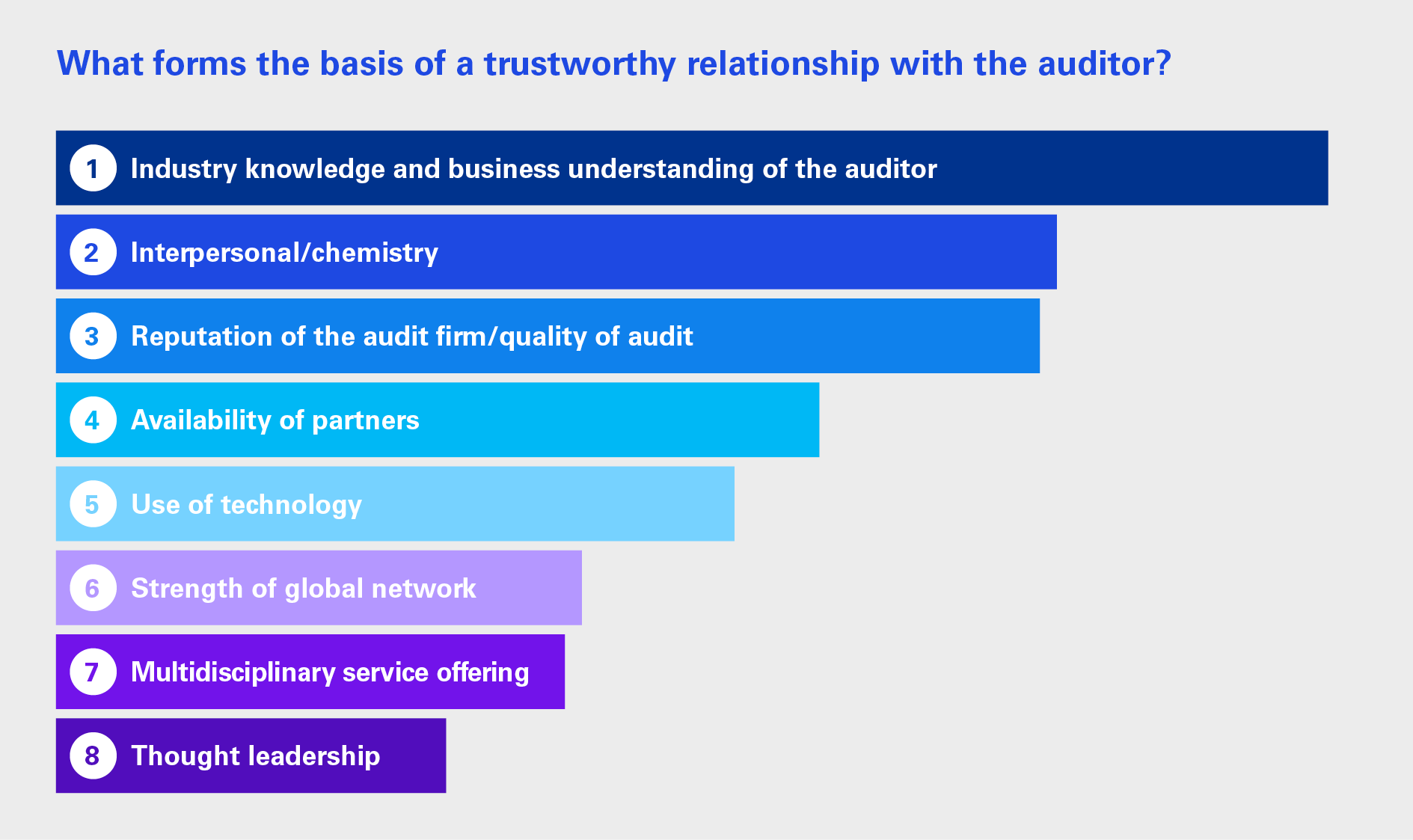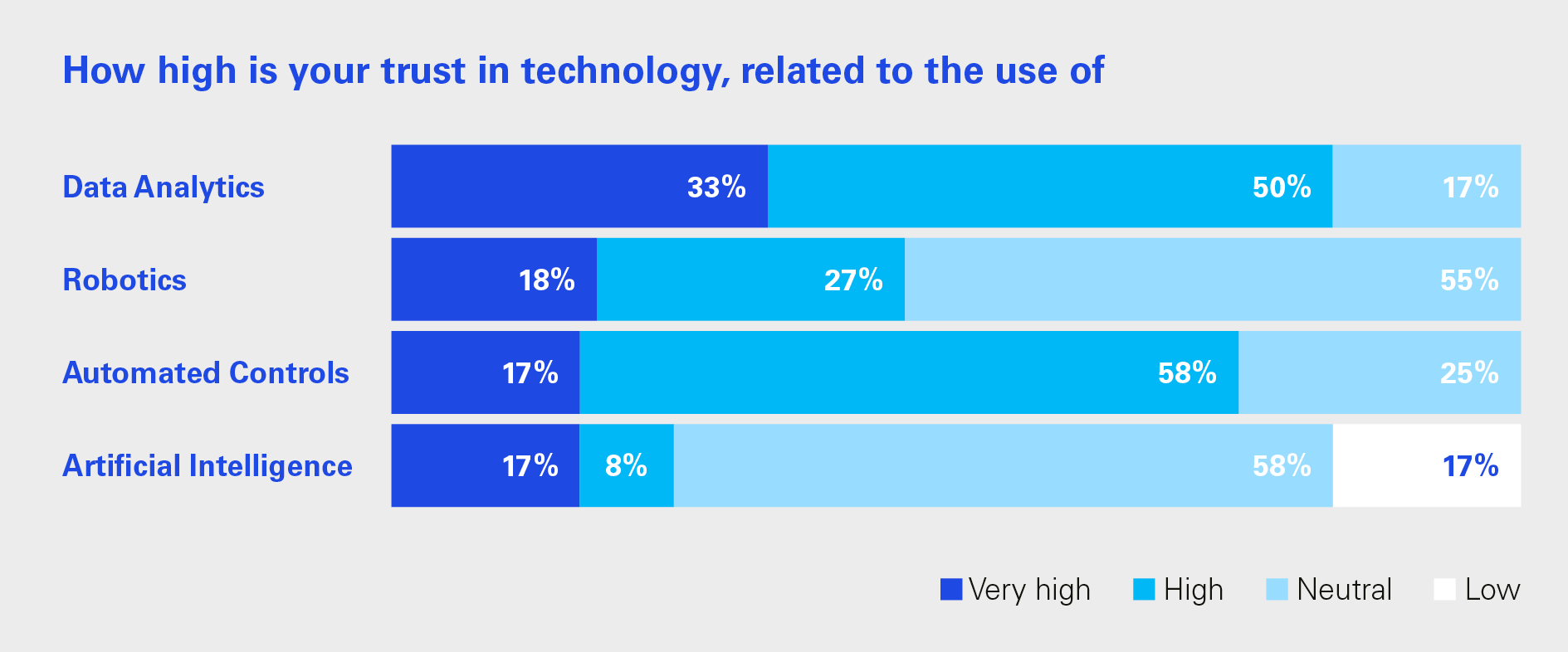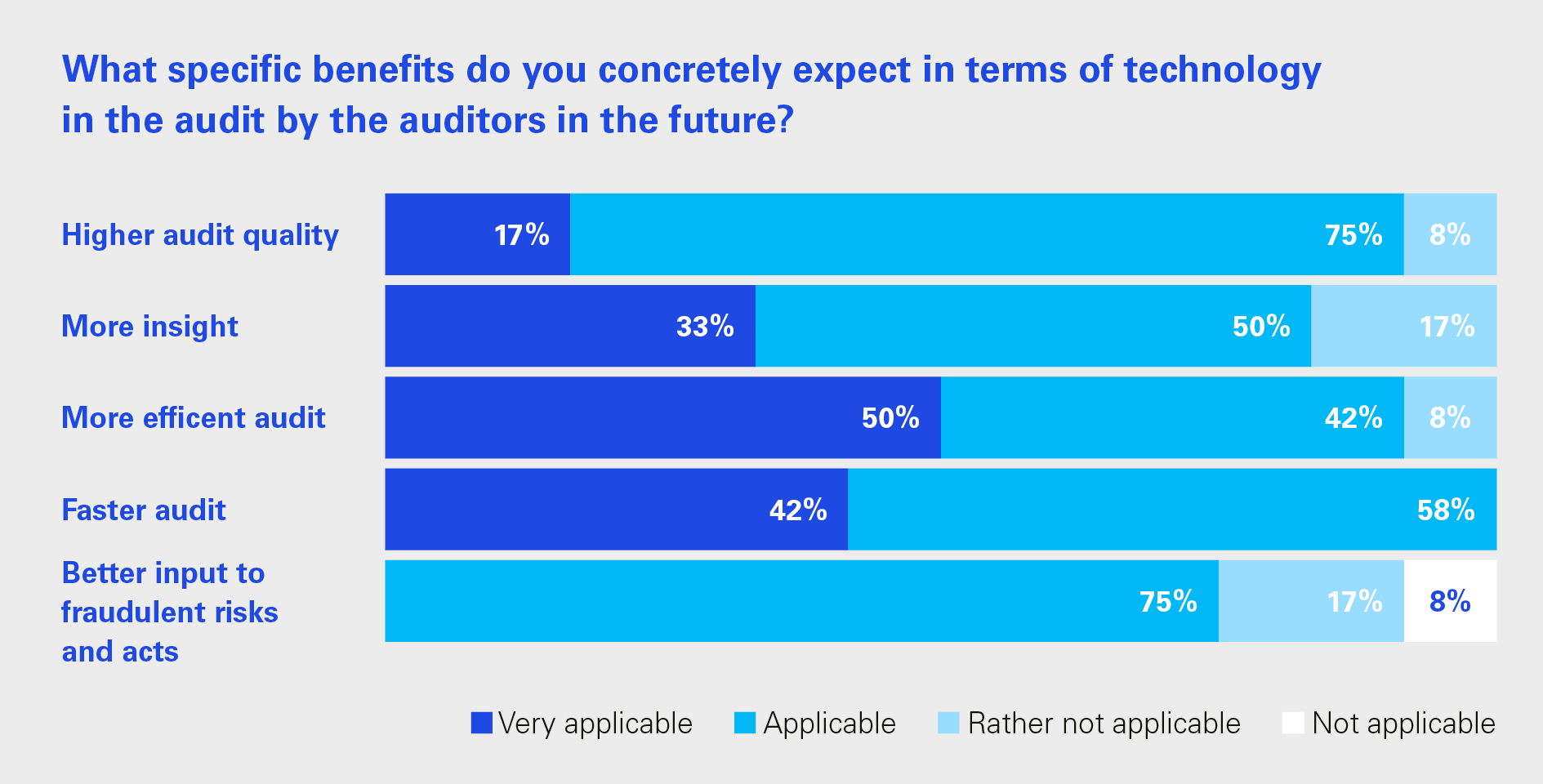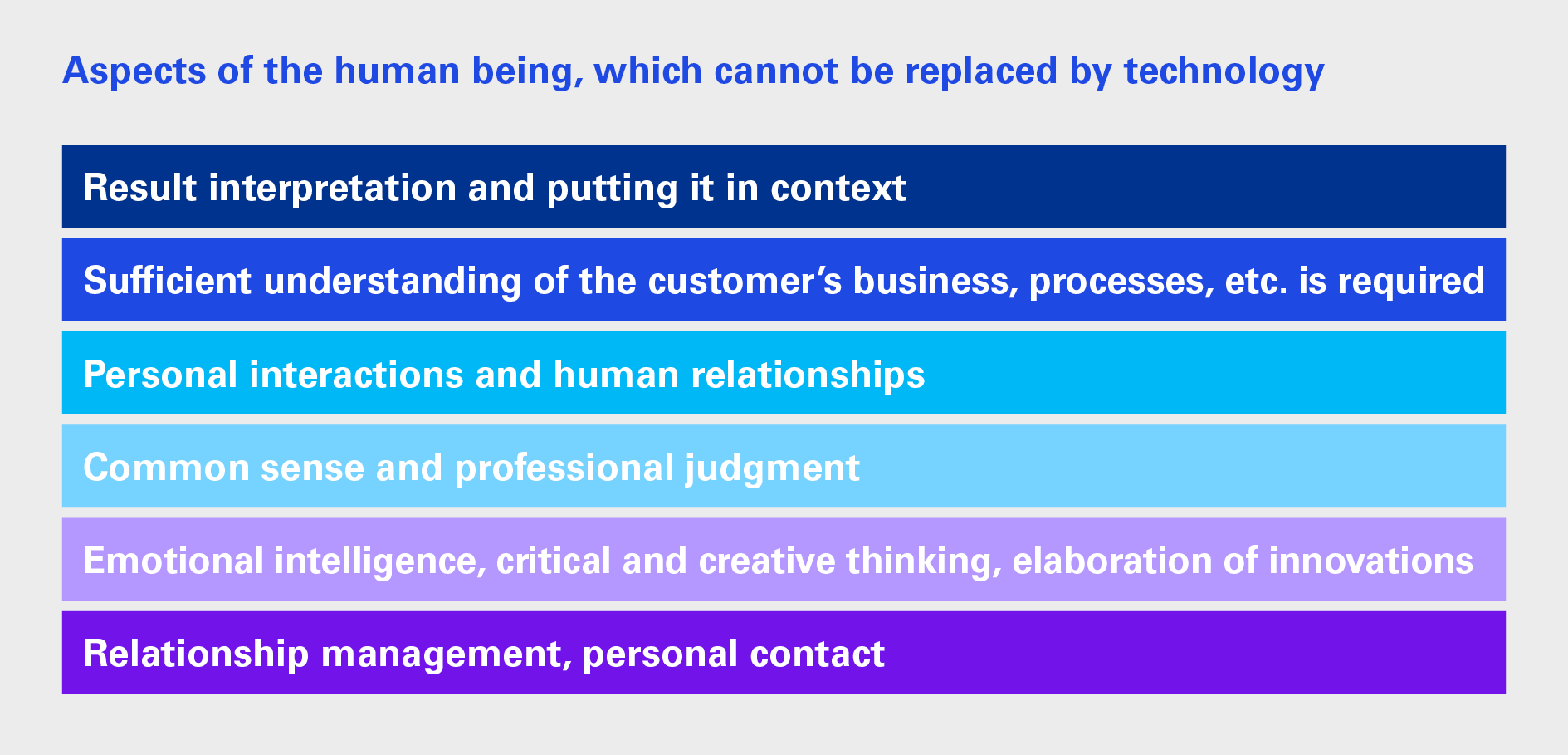A survey on the topic of clients and trust in an era of new technological possibilities highlights that technology is a must-have, but only adds value if humans are in the loop.
Clients expect high benefits from the use of technology such as Data Analytics, Robotics and Automated Controls. When it comes to Artificial Intelligence, there is a clear need for trust.
Technology has permeated every aspect of our society, from businesses to personal interactions. The impact goes beyond a mere technological transformation; it also has far-reaching consequences on a fundamental aspect of human society: trust. Trust being the fundamental fuel for every aspect of society.
The shift in the paradigm is about how we build and maintain trust in a world dominated by technology. The trustworthiness of information that we use for decisions is key as it has always been. But the path to obtaining this trustworthiness may be impacted by technology.
What does this mean for the trustworthiness of the auditor, a key figure when it comes to the trustworthiness of information? And what do Board members, CFOs and Heads of Accounting expect from their auditors in this perspective?
We spoke to a series of clients about this fascinating topic.










